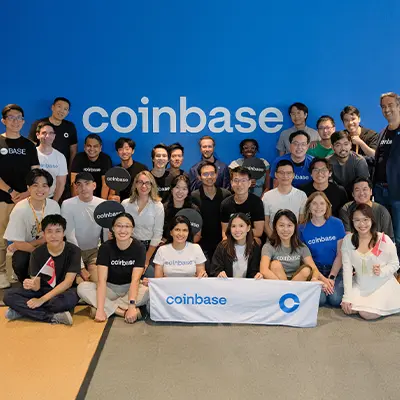Some of the world's biggest tech firms are stepping up training efforts to help Singapore meet the surging demand for digitally skilled workers in an ever-widening range of industries.
One multinational leading the charge is cloud computing platform Amazon Web Services (AWS), a unit of tech giant Amazon, that is scaling up programmes to train workers, mid-career professionals and even students.
"AWS is not the only company that has stepped up," said Mr Ang Chin Tah, senior vice-president and head of Digital Industry Singapore, a joint office of the Economic Development Board, Enterprise Singapore and the Infocomm Media Development Authority.
"Companies like Facebook, Dell and IBM, among others, have also agreed to support Singapore in this learning journey.
"Altogether, leading tech companies have committed close to 10,000 training and job placements, including at least 2,600 places that will end up in jobs either with themselves or with partners."
Mr Ang noted that it will take the entire ecosystem of businesses, schools and public sector agencies to train digital talent, adding: "I think it's in the spirit of community and collaboration that Singapore can position ourselves to succeed in the digital future."
Training is certainly needed. A study by AWS this year found that Singapore will need an additional 1.2 million digital workers by 2025, a sharp 55 per cent increase from today's levels. This includes existing workers who will need to upskill, students entering the workforce in coming years and people who are unemployed or out of the workforce and who need digital skills to access job opportunities.
Cloud architecture design will be the most in-demand skill over the next five years, alongside other capabilities like cyber security, software operations support, Web, software and game development, and large-scale data modelling.
To this end, AWS is scaling up its programmes this year to provide skills training, on-the-job traineeship and mentorship opportunities for more workers.
AWS piloted the scheme last year with polytechnic and university graduates, among others, but is hoping to include a larger swathe of workers this year, such as mid-career professionals.
The programme ranges from three months to a year for different tracks.
Ms Tan Lee Chew, AWS managing director for Asean, Worldwide Public Sector, said: "The pandemic has clearly accelerated the process of digital transformation and the role that it plays in the economy.
"We're seeing technology becoming more multidisciplinary even in the non-tech world. Against this backdrop, the building of digital skills is fast becoming a key enabler."
The study also revealed that half of digital workers here who are not applying cloud computing skills now, believe they will be a requirement of their jobs by 2025.
This is why AWS is working with firms to upskill existing employees. Last year, it partnered DBS bank to train around 3,000 employees in artificial intelligence (AI) and machine learning.
Such training also starts young, with an AWS pilot last year to implement a customised curriculum for cloud computing in Montfort and Regent Secondary schools.
The curriculum, which was offered as part of the Education Ministry's applied learning programme, is now available to all secondary schools.
Globally, AWS is committed to upskill 29 million people with its free cloud training courses.
Mr Ang noted that Singapore has expanded its digital talent pipeline from its autonomous universities over the past few years: "Computer science as a degree has become valuable and valued by parents as well as Singaporean students. The cohort size has actually tripled over the past five to 10 years."
Having this pipeline remains essential, especially as the tech industry is poised for growth, he said.
The infocomms and media industry attracted investment commitments amounting to $1 billion in fixed asset investments last year despite the pandemic, an increase over the $981 million in 2019.
Mr Ang said: "Over the past few years we have seen investments into Singapore digital companies continue unabated.
"The Covid-19 pandemic is terrible (but) has actually accelerated digitalisation as people and companies go online and play.
"Western companies coming into the region find that they need a jumping-off point into South-east Asia, and where they turn to will be a place that has established itself as a trusted location for businesses, is stable, neutral and connected to international markets."
He noted that companies like PayPal, Zoom and Twitter have set up here despite the pandemic, and regional giants such as Tencent have also landed in Singapore.
Mr Ang said: "Even though it's been a difficult year for the economy, the sector has done relatively well.
"I think we want to really double down on talent development to make sure we connect these opportunities to Singaporeans," he added.
Source: The Straits Times © Singapore Press Holdings Limited. Permission required for reproduction.
Image copyright: mavoimage







